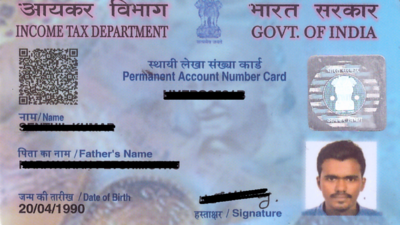ARTICLE AD BOX

NEW DELHI: Have you received an email asking you to download your e-PAN card? If yes, you are advised to ignore it. The Press Information Bureau’s Fact Check unit has issued a warning against such messages, confirming that they are fake.⚠️ This Email is #Fake, PIB Fact Check said in an advisory shared on social media, along with a screenshot of one such phishing email. The fraudulent message, titled “Download e-PAN Card Online: A step-by-step guide”, comes from an unauthorised address and is designed to trick recipients into clicking malicious links.According to the advisory, users must not respond to any emails, links, calls, or SMS that request financial or personal information such as bank details, PIN numbers, or passwords.The Income Tax Department clarified that:
- It does not request personal details through email.
- It never asks for PINs, passwords or credit card information via messages.
- Users should be cautious of emails that direct them to fake IT department websites.
Phishing emails typically pretend to be from authorised institutions and may contain links or attachments that can infect your computer. The department has outlined the following safety guidelines:
- Do not reply to such emails.
- Do not open any attachments.
- Do not click on suspicious links, or copy-paste them into your browser.
- Keep your anti-virus, anti-spyware, and firewall software updated to guard against malware.
If you suspect an email or website to be fraudulent:
- Forward it to [email protected].
- Also send a copy to [email protected].
- You can forward the entire message or include its Internet headers to help track the sender.
- Delete the email after reporting.
What is phishing? Phishing is a fraudulent practice used to steal sensitive information like usernames, passwords, and credit card details by posing as a legitimate and trusted source in digital communications. Cybercriminals often impersonate banks, popular social media platforms, e-commerce sites, online payment services, or IT administrators to deceive recipients.These deceptive messages—usually sent via email or instant messaging—often direct users to fake websites that closely mimic the appearance of genuine ones, tricking them into entering confidential information.



.png)
.png)
.png)
















 2 hours ago
3
2 hours ago
3









 English (US) ·
English (US) ·